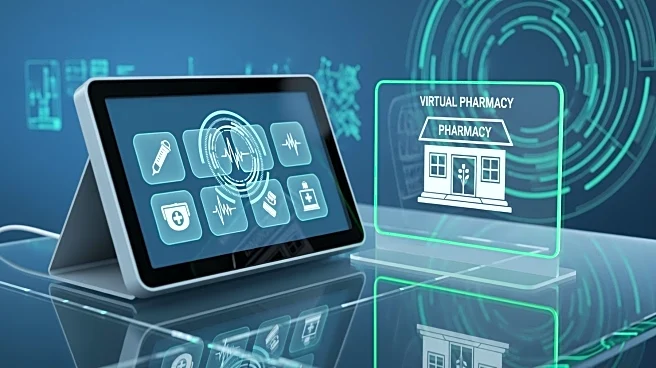What's Happening?
Doc.com, a healthcare technology company, has launched a new telemedicine platform in the U.S. The platform offers free telemedicine consultations and online pharmacy services, leveraging AI-driven technology to meet diverse healthcare needs. The rollout
begins in West Virginia and Virginia, covering approximately 2.9% of the U.S. population, with plans for nationwide expansion by 2027. The platform integrates telemedicine, mental health support, veterinary care, pharmacy, and education, using AI to enhance diagnostics and personalize treatment. Blockchain technology is employed to ensure transparency and security in interactions.
Why It's Important?
The launch of Doc.com's platform is significant as it aims to make healthcare more accessible, particularly for underserved communities. By offering free consultations and integrating AI and blockchain, the platform could revolutionize healthcare delivery, making it more efficient and secure. This initiative supports health equity and could lead to improved patient outcomes by providing timely and personalized care. The use of blockchain for secure payments and record management further enhances trust and transparency in healthcare services.
What's Next?
Doc.com plans to expand its platform across the U.S. in multiple stages, achieving full availability by January 2027. The introduction of a cryptocurrency and blockchain layer will facilitate secure telemedicine payments and AI-driven diagnostics. As the platform grows, it may face challenges related to regulatory compliance and integration with existing healthcare systems. Stakeholders, including healthcare providers and patients, will likely monitor the platform's effectiveness and impact on healthcare accessibility and quality.
Beyond the Headlines
The integration of AI and blockchain in healthcare raises ethical and legal considerations, particularly regarding data privacy and security. As the platform expands, it may influence broader healthcare policies and practices, encouraging other providers to adopt similar technologies. The focus on health equity aligns with global efforts to improve access to healthcare, potentially setting a precedent for future innovations in the industry.















